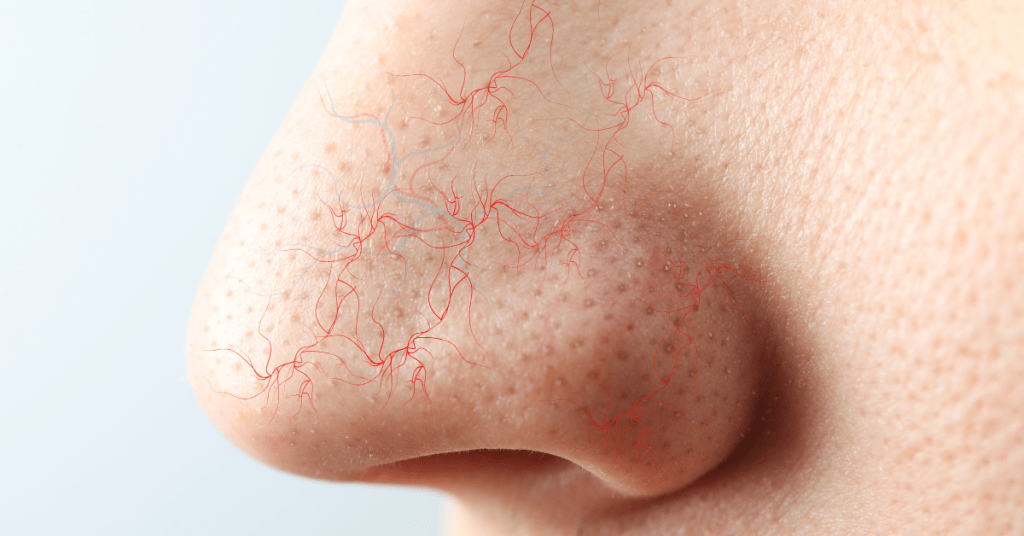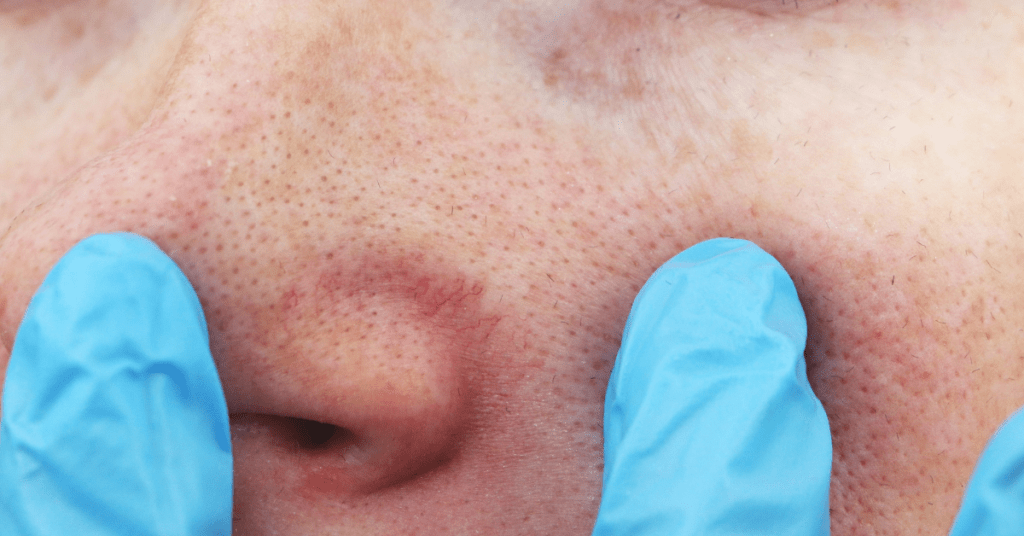Explore the world of varicose veins on the nose as we delve into the causes, symptoms, and treatment options for this unique condition. Whether you’re seeking to understand the underlying factors or exploring potential remedies, Get ready to learn is designed to equip you with valuable insights and knowledge about varicose veins on the nose. Join us on a journey to uncover the intricacies of this medical condition and discover the options available for managing and treating it.
What are Varicose Veins on the Nose?
Varicose veins on the nose, also known as spider veins or telangiectasia, are small, dilated blood vessels that appear close to the skin’s surface. These veins often take on a red or purple appearance and can be quite noticeable, causing concern for many individuals. While varicose veins commonly occur in the legs, they can also develop on the nose due to various factors.
Varicose veins on the nose differ from varicose veins in other parts of the body due to their location and the underlying causes. The nose is a prominent feature of the face, and the appearance of varicose veins in this area can be particularly distressing for individuals. Understanding the specific causes and treatment options for varicose veins on the nose is crucial for effectively managing this condition.

Causes of Varicose Veins on the Nose
Genetics and Family History
Genetics play a significant role in the development of varicose veins on the nose. Individuals with a family history of varicose veins are more likely to experience this condition themselves. Genetic factors can influence the strength and integrity of the blood vessels, making some individuals more prone to developing varicose veins on the nose.
Hormonal Changes
Hormonal fluctuations, particularly during pregnancy or menopause, can contribute to the development of varicose veins on the nose. Changes in hormone levels can weaken the blood vessels, leading to the formation of spider veins in various areas of the body, including the nose.
Sun Exposure and Skin Damage
Prolonged sun exposure and skin damage can also be contributing factors to the development of varicose veins on the nose. UV radiation from the sun can cause damage to the skin and blood vessels, leading to the appearance of spider veins. Individuals who spend significant time in the sun without adequate protection may be at a higher risk of developing varicose veins on the nose.
Symptoms of Varicose Veins on the Nose
Visible Red or Purple Veins on the Nose
The most apparent symptom of varicose veins on the nose is the visible appearance of red or purple veins on the skin’s surface. These veins may form a web-like pattern, giving the appearance of spider veins, hence the alternative name for this condition.
Swelling or Bulging of the Veins
In addition to their visible appearance, varicose veins on the nose may also cause swelling or bulging of the affected veins. This can further contribute to the noticeable nature of the condition and may cause discomfort for some individuals.
Discomfort or Tenderness in the Affected Area
Some individuals with varicose veins on the nose may experience discomfort or tenderness in the affected area. This can range from a mild sensation of pressure to more pronounced discomfort, particularly if the veins are swollen or inflamed.
Treatment Options for Varicose Veins on the Nose
Topical Creams and Ointments
Topical creams and ointments containing ingredients such as vitamin K, retinoids, or arnica may be used to reduce the appearance of varicose veins on the nose. These products work by promoting blood circulation and supporting the body’s natural healing process.

Laser Therapy and Other Noninvasive Procedures
Laser therapy and other noninvasive procedures can effectively target and reduce the appearance of varicose veins on the nose. These treatments work by delivering targeted energy to the affected blood vessels, causing them to fade and eventually be reabsorbed by the body.
Surgical Options for Severe Cases
In severe cases of varicose veins on the nose, surgical options such as sclerotherapy or vein ligation may be considered. These procedures involve the removal or closure of the affected blood vessels to alleviate the appearance and symptoms of varicose veins.
Understanding the causes, symptoms, and treatment options for varicose veins on the nose is essential for individuals seeking to manage this condition effectively. By addressing the underlying factors and exploring potential remedies, individuals can take proactive steps towards managing and treating varicose veins on the nose. With advancements in medical technology and the availability of specialized treatments, individuals can seek professional guidance from healthcare providers, such as Aadicura Super Speciality Hospital, to address varicose veins on the nose and promote overall skin health.
Managing Varicose Veins on the Nose with Easy Treatment
Understanding and managing varicose veins on the nose require a holistic approach that addresses their underlying causes, noticeable symptoms, and effective treatment options. From genetic predispositions and hormonal changes to external factors like sun exposure, the triggers for this condition are diverse but manageable with the right care.
For individuals seeking comprehensive and specialized care, Easy Treatment offers expert guidance and access to advanced treatment options tailored to conditions like varicose veins on the nose. With a focus on patient-centric solutions, Easy Treatment connects you with top medical professionals to explore non-invasive therapies, such as laser treatments, or surgical options when necessary.
Don’t let the appearance of varicose veins affect your confidence or comfort. Visit Easy Treatment to learn more about how to achieve healthy, radiant skin and effectively manage conditions like varicose veins on the nose. Let their expertise guide you on a journey toward improved skin health and overall well-being.

